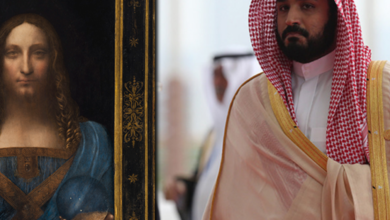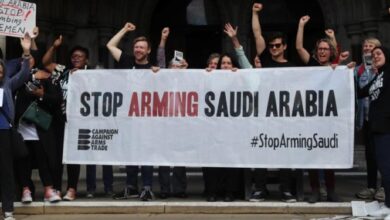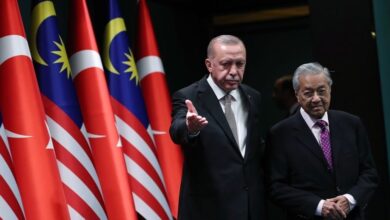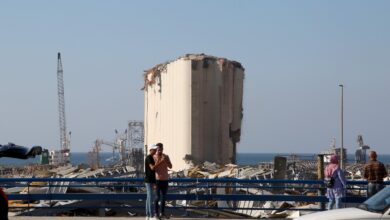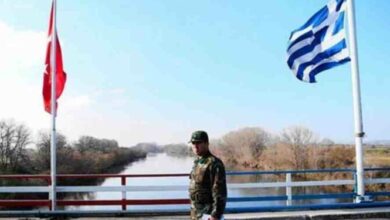In the crosshairs of a crown prince? Canadian hit-squad claim just latest allegation against controversial Saudi royal
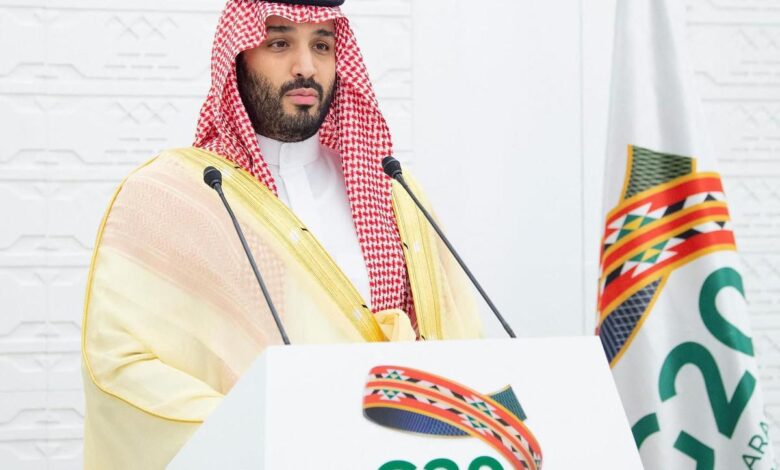
The two Saudi emissaries who visited Omar Abdulaziz wanted him home.
It was the spring of 2018 and Abdulaziz, a high-profile Saudi dissident and activist living in exile in Montreal, was developing a huge following on social media. While studying at McGill University, he had started a satirical news show on YouTube that took aim at Saudi Arabia’s human rights record. It was getting millions of views.
The two emissaries — one a lawyer, the other a TV host — suggested he could have his own show and become the “voice of the youth” back in Saudi Arabia, he recalls.
But the conversation had clear overtones. One of the men told Abdulaziz, who secretly recorded their conversations, there were two options: Either return home or he “goes to jail.”
Why not at least go to the embassy to get your passport renewed, they implored.
He never went.
Looking back, he says he’s haunted by the thought of what might have happened next. It was only a few months later that Jamal Khashoggi, the Saudi dissident and Washington Post columnist, was killed and dismembered inside the Saudi consulate in Istanbul, Turkey.
“I don’t know what was the plan — killing me, kidnapping me, taking me away from Canada? I don’t know,” he told the Star.
Saad Aljabri, a former top Saudi intelligence official who fled to Canada in 2017, claims in a lawsuit that the crown prince sent a ‘hit squad’ to kill him in 2018.
In recent months, the world has been captivated by the story of Saad Aljabri, the former high-ranking Saudi intelligence official exiled in Toronto who has made stunning allegations in a lawsuit that Crown Prince Mohammed bin Salman and his agents have repeatedly tried to lure him out of hiding and even sent a team of hit men to try to kill him in Canada. Lawyers for Aljabri — once a top aide to a key rival to bin Salman in a bid for the throne — allege he was targeted because of his close ties to Western security officials and the confidential information Aljabri holds about the crown prince.
But Aljabri is far from the only person in the world claiming to be a target of the Saudi regime. High-profile dissidents, activists and former royal insiders, from Montreal to Oslo, Norway, to Düsseldorf, Germany, say their outspokenness has put their safety — and that of their loved ones back home — in jeopardy.
Bin Salman was elevated to crown prince in June 2017, making him de facto ruler. Even as he has introduced social reforms, such as lifting the ban on female drivers, and pushed to diversify the economy away from a reliance on oil, he has also engaged in an intense effort to suppress government critics through mass arrests, according to human rights watchers.
This push to consolidate power and sideline those deemed as foes has occurred not only at home but abroad, security observers say.
“It’s foreign interference,” said Alan Treddenick, who spent 32 years with the RCMP and CSIS that included a posting at the Canadian embassy in Riyadh.
“That shouldn’t be happening. That’s why we should be outraged with this sort of thing.”
The crown prince has previously denied personal involvement in the killing of Khashoggi. In response to Aljabri’s lawsuit, bin Salman’s lawyers have said Aljabri’s claims are without merit and an attempt to divert attention from “massive theft” of state funds.
Saudi embassies in Ottawa and Washington, D.C., did not respond to the Star’s requests for comment for this story.
Abdulaziz, who claimed asylum in Canada in 2013 after the Saudis revoked a scholarship to study here and was later granted permanent resident status, had built a close friendship with Khashoggi, whose killing would make headlines around the world.
Abdulaziz had been working with Khashoggi in the months prior to his death on a project to build an army of volunteers to counteract pro-Saudi propaganda online.
Omar Abdulaziz, a Saudi dissident now living in Montreal, says he has no plans to quit being a vocal critic of the Saudi regime.
In the recently released and critically acclaimed documentary, The Dissident, about the assassination of Khashoggi, Abdulaziz says it was around this time that he was approached out of the blue by two Saudi emissaries.
In a March 2018 phone recording featured in the documentary, one of the men tells Abdulaziz they have a message from the crown prince, who is referred to by his initials.
“Omar,” the man says. “MBS said, ‘First of all, this is Omar’s country, and nobody can stop him from entering his country. Omar is under my protection. Tell him: You are under bin Salman’s protection.’”
When the pair of emissaries travel to Montreal, Khashoggi tells Abdulaziz to make sure their meetings are in public places, such as restaurants or cafes.
During one of the recorded meetups, the emissaries continue to push Abdulaziz to return home.
“There are two scenarios,” one of them says. “A scenario where Omar returns home, and Omar benefits. Now the country has benefited a lot because Omar is working in its media outlets and platforms. The second scenario — Omar goes to jail.”
Abdulaziz stayed put, a decision that resulted, he alleges, in the detention of two brothers and many friends back home.
“They’re blackmailing me. Just to silence me,” Abdulaziz, who boasts more than half a million followers on Twitter, told the Star.
In a lawsuit filed this month in New York Supreme Court, Abdulaziz alleges that a PowerPoint presentation prepared by consulting firm McKinsey & Company in 2016 and shared to bin Salman or his agents identified him and two other men as being the three most influential dissidents using Twitter to criticize bin Salman and his policies.
As a result, Abdulaziz continues to face pressure from Saudi agents to stop his political activities, fears for his life and, at one point, was even “forced into hiding and had to move from hotel to hotel for four months to avoid being kidnapped or harmed,” the lawsuit contends.
In a statement, the company said the claims were meritless and denied it was commissioned by the Saudi government to produce the report. It said there was no evidence the document was misused and that Abdulaziz “was recognized as an influential voice years before the internal McKinsey document was produced.”
Abdulaziz claimed in a separate lawsuit that his phone was hacked in June 2018, exposing his mobile communications to Saudi authorities.
“The spying that was directed against (Abdulaziz) and the disclosure of the content of the conversations and messages between him and Khashoggi through the system contributed significantly to the decision to assassinate Mr. Khashoggi,” the lawsuit states.
The lawsuit was filed in Tel Aviv after members of the Citizen Lab, a digital watchdog group based at the University of Toronto’s Munk School of Global Affairs & Public Policy, published a report in October 2018 outlining how Abdulaziz’s phone came to be infected with spyware sold by an Israeli vendor with links to Saudi Arabia.
That Israeli surveillance company, NSO Group, called the allegations “completely unfounded.”
Meanwhile, the threats to Abdulaziz’s life have persisted, he said.
“I’ve been in touch with the Canadian authorities, the RCMP. They warned me a couple of times about illegal threat, that I might be a potential target,” he said, declining to elaborate.
“We live in a time where some dictators, such as Mohammed bin Salman, they don’t want anyone to criticize them. … So if we’re not going to remain silent, if we’re not going to shut down our work or our projects, that means we put our lives in danger.”
During the filming of the documentary, while walking through a subway station, Abdulaziz scrolls through a text message on his phone.
“I just received this, you know, while we were walking,” he tells the camera. “Just three minutes ago. It’s anonymous and he’s saying that, ‘Just be careful. Move from city to another one. Do not use your phone, try to change your phone number, and there’s a team that’s going to kill you soon.’ It’s from Canada. It’s not from outside the country.”
It is not clear in the film whether this was intended as a threat or a warning from a friendly party.
The Palestinian human rights activist, blogger and vocal critic of bin Salman has said authorities have warned him of possible threats against him from Saudi Arabia.
‘The sad fact is that like bullies, dictators cannot be appeased, they take silence as permission,’ human rights activist Iyad el-Baghdadi told the Star.
In May 2019, Reuters reported that Norwegian security services had whisked him to a secure location the previous month.
“Once I was there and settled down, they told me that … they have received a tip from a partner intelligence agency indicating that I’ve been the target of a threat,” he told the news agency.
The Guardian reported the tip came from the CIA.
Never miss the latest news from the Star, including up-to-date coronavirus coverage, with our email newsletters.
This past December, the Norwegian news outlet Dagbladet reported that in the summer of 2018, the Norwegian government received an “unusual” request: The Saudi government wanted to send 10 security guards to work at the embassy in Norway and asked they be registered as diplomats, which would give them immunity status.
This request, Dagbladet reported, coincided with a meeting in Oslo between el-Baghdadi and his friend Khashoggi.
“If they sent a team, I would assume it was to find out what was going on between me and Khashoggi,” el-Baghdadi was quoted as saying. “We talked about meeting again and doing projects together.”
Ultimately, the Norwegian government granted only one of the 10 guards diplomatic status.
In a statement at the time, the Saudi embassy denied any knowledge of el-Baghdadi and said the addition of the guards was in response to threats Saudi embassies in several countries had received.
Martin Bernsen, a spokesperson for the Norwegian Police Security Service, told the Star in an email he could not discuss operational matters but did acknowledge the existence, generally speaking, of foreign targeting of residents in the country.
“In general, the activity that Dagbladet describes is something that is associated with what we call refugee espionage,” he said. “The aim of such activity is to undermine, neutralize or eliminate political opposition.”
Asked if he had learned further details about the security team sent to Norway, el-Baghdadi told the Star in an email he could not discuss his personal security. But he encouraged Canadian citizens to “open their eyes as to the depth of depravity and evil” represented by the crown prince.
Saudi Arabia’s Crown Prince Mohammed bin Salman. Saad Aljabri, a former top Saudi intelligence official who fled to Canada in 2017. Saudi journalist Jamal Khashoggi was killed in October 2018.
“To the ‘layperson,’ the idea that the Saudi government can lure a U.S.-resident journalist to their embassy in Turkey, kill him, dismember his body and burn his remains in a tandoori oven in the nearby ambassador’s residence seems too fantastical even for a movie, but that’s exactly and factually what happened,” he wrote.
“Canada is a kind country and a mature democracy. To those who have only experienced life under a democracy, the actions and incentives of dictatorships may seem rather hard to understand. The sad fact is that like bullies, dictators cannot be appeased, they take silence as permission. If there is no stern response, they will keep doing what they’ve been doing until someone stops them.
“MBS will not stop unless he is stopped.”
That sentiment was echoed in a Vanity Fair investigation published in 2019 that documented how the Saudi regime sent operatives to foreign countries to “silence or neutralize” perceived foes.
In that story, Prince Khaled bin Farhan al-Saud, a rogue royal in exile in Düsseldorf who has publicly called for a constitutional monarchy back home, shared how, in June 2018, the Saudi embassy in Cairo, where his mother lives, contacted her to say that the kingdom was willing to offer him $5.5 million in an effort to mend relations. But the offer had a catch: He needed to come to a Saudi embassy or consulate to collect.
He did not accept.
In an amended complaint recently filed in U.S. District Court in Washington, D.C., Aljabri alleges that in 2018, an attempt was made to lure his daughter to the same Saudi consulate in Istanbul where, just days later, Khashoggi was killed. She did not go to the consulate.
The amended complaint also alleges that following one botched attempt to send a group of would-be assassins — a “Tiger Squad” — to Canada to kill Aljabri in October 2018, the crown prince convened a meeting in May 2020 with his agents to pursue another mission to kill Aljabri — this time by travelling to the United States and then entering Canada by land.
Two months later, because of a “credible and imminent threat to his life,” RCMP stationed an emergency response team outside Aljabri’s home, the lawsuit says.
RCMP spokesperson Robin Percival said in an email the agency does not generally comment on operations, allegations or investigations.
“Canada has a robust national security regime in place. The RCMP takes seriously and investigates criminal threats to Canada’s national security and works with federal and international partners to keep Canadians safe.”
Experts say Aljabri’s allegations are troubling.
“Of course it’s plausible. The world’s a nasty place, man,” said Daniel Hoffman, who formerly headed the CIA’s Middle East division.
“The way things work in the kingdom of Saudi Arabia is a lot different than other places,” he added, noting that two of Aljabri’s adult children were detained last year and held incommunicado in an apparent bid to lure him out of hiding.
Treddenick agrees that Aljabri and his family have a “legitimate fear” for their safety.
“If foreign governments are coming in and threatening Canadian citizens or residents, shouldn’t we be concerned about that?”
Treddenick says he got to know Aljabri professionally and personally when Aljabri was a top official within the Saudi interior ministry.
“He was very serious, very committed to assisting the West in countering terrorist threats. It was a great relationship. It paid dividends for Canada, the U.S. and the UK.”
Treddenick said he questions the timing of a lawsuit filed last month by a group of Saudi state companies that alleges Aljabri embezzled billions of dollars in state funds and secreted that money in offshore locations — claims that Aljabri has denied.
“What I don’t like is an abuse of the Canadian court system and that’s what, to me, this looks like — abuse by a foreign government,” he said.
With such perceived threats, does Abdulaziz ever get tempted just to quit his activism?
His answer is unequivocal.
“Not at all. Everyday I’m encouraged by what’s happening and I think what we’re doing is something important not only for us, not only for our loved ones, not only for my arrested friends and brothers, but it’s also for thousands of prisoners back there in Saudi,” he said.
“I cannot remain silent. That would betray them. … Thousands of people — our philosophers, scholars, activists, human rights defenders — are jailed in Saudi Arabia. If I’m going to say it’s not my (problem) anymore, this is a betrayal.”

